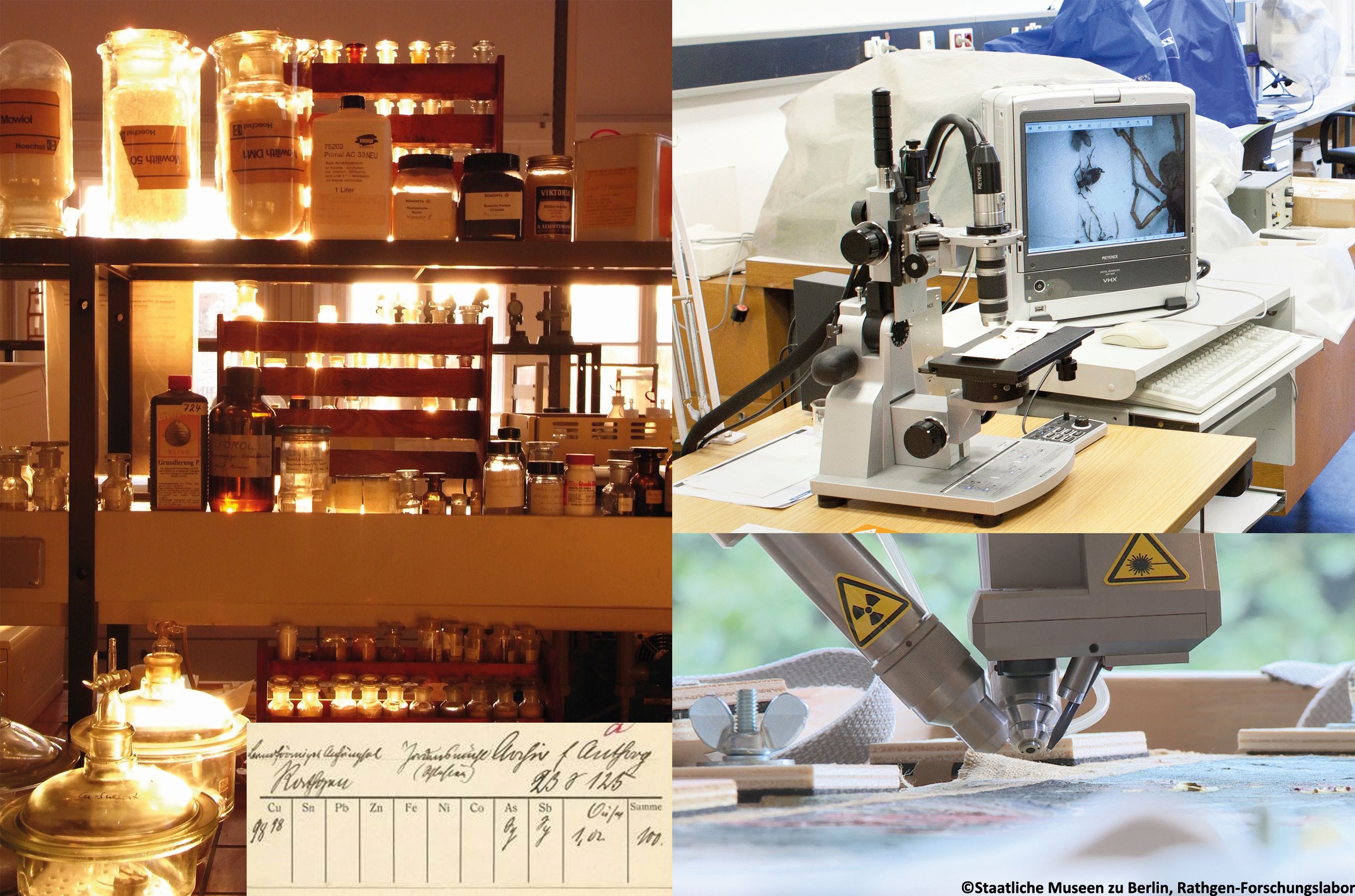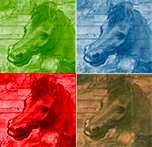Stiftung Preußischer Kulturbesitz (SPK)-Staatliche Museen zu Berlin – Rathgen Forschungslabor (Rathgen Research Laboratory)

http://www.smb.museum/en/museums-and-institutions/rathgen-forschungslabor/home.html
With its museums, libraries, archives, and research institutes, the Stiftung Preussischer Kulturbesitz (SPK, Prussian Cultural Heritage Foundation) is one of the important cultural institutions in the world. It was established in 1957 by federal law as a foundation directly responsible to the German government. The Stiftung Preussischer Kulturbesitz has taken over tasks of national interest in various thematic areas including research and documentation of museums as such and best management practices. Because of its structure as a cross-disciplinary cultural institution, the Foundation has extensive knowledge about the preservation of cultural assets and digitization.
The active part of the SPK facilities for IPERION-CH is the Rathgen-Forschungslabor (Rathgen Research Laboratory, RF). It is the leading institution for heritage science of the Staatlichen Museen zu Berlin (National Museums in Berlin, SMB), one of the five institutions of the SPK.
The Rathgen-Forschungslabor is believed to be the oldest museum’s laboratory in the world. It was founded in 1888 as the Chemical Laboratory of the Königliche Museen zu Berlin (Royal Museums of berlin) and was later renamed in honor of its first director Friedrich Rathgen, a chemist who specialized in the conservation and analysis of historical objects.
It investigates museum objects and ancient materials of all kinds and conducts scientific research on the preservation of historical objects, monuments and archaeological sites. The five main research areas are:
- Preventive conservation
- Study of alteration and degradation mechanisms of cultural heritage
- Art-technological investigations of objects
- Science for conservation
- Archaeometry
The laboratory is well-equipped with up-to-date instruments that enable a wide range of tests and analyses, such as optical, digital and environmental scanning electron microscopy (ESEM/EDS), portable and conventional X-ray fluorescence (µ-XRF and XRF) spectrometry, X-ray diffraction (XRD), infrared (FT-IR), Raman and UV-Vis spectroscopy, multispectral imaging (UV-Vis-IR), microfading tests (MFT), pyrolysis-gas chromatography/mass spectrometry (Py-GC/MS), high performance liquid chromatography (HPLC), atomic absorption spectrometry (AAS), non-destructive ultrasonic-testing, and other equipment to determine the mechanical properties of materials. It also provides artificial ageing chambers for climatic simulation, and mobile systems to monitor the physical and chemical environments in the museums’ collections.
The RF provides services based on its theoretical and methodological expertise to its partners and clients within the SPK and beyond. The research lab is also raising funds and conducting long-term research projects.
Contact Person
Stefan Simon
E-Mail Address
s.simon@smb.spk-berlin.de
